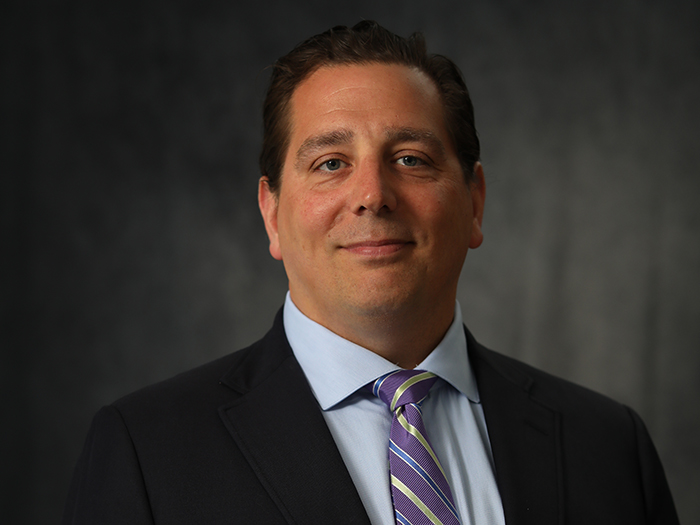The Alliance of Women in Workers’ Comp Presents on Executive Presence Ahead of National Comp

Angie Nuttle didn’t learn how to be a corporate leader in the boardroom. She learned it serving the United States as an HR defense contractor in Iraq.
“Everything that I’ve learned about executive presence, I learned in Iraq,” she said.
Nuttle was one of only 16 women on her base the three years she spent overseas. It took courage and dedication for her to complete her day-to-day tasks, but along the way she learned how to project confidence both in herself and in her work, something many women struggle with.
Nuttle shared her experiences as part of a pre-conference session presented by the Alliance of Women in Workers’ Compensation at the National Workers’ Compensation and Disability Conference.
The theme for this year’s event was “executive presence,” which the session defined as “the power to confidently put plans and actions into effect in a way that is seen, heard, valued and celebrated.”
Nuttle kicked off the event with her keynote address and afterwards a panel of three workers’ comp professionals discussed how women can cultivate executive privilege and utilize it in building their careers.
The 4 Obstacles to Executive Presence
Nuttle detailed four obstacles that women often face when it comes to developing executive presence.
Needing to control. The need to control is one that is familiar to many in high-stress jobs. Many things need to be managed day in and day out and it can be difficult to to keep track of all the moving pieces.
A need to control all of the details may seem like good management, but if you’re too anxious it can prevent you from acting with intention and projecting the confidence that is a key tenet of executive presence.
“You can’t control other people. And the sooner that you realize that the more traction, you’re going to make with your presence, Nuttle said. “You can only control you and how you respond.”
Needing to prove oneself. Nuttle noted that many women often feel they need to work twice as hard as their male counterparts, blurring work life boundaries and pushing them to burnout n the process. “We’re trying to prove ourselves and and control and we’re trying to belong,” she said. “We’ll do the extra work, we’ll stay the extra hours to our own detriment.”
Needing to belong. Trying too hard to fit in can prevent female leaders from taking risks and standing out amongst the crowd. Women should be confident in voicing their ideas and taking risks.
Needing to be needed. Similar to needing to belong, the need to feel needed can hamper women’s careers because it prevents them from taking risks in the workplace.
“Executive presence is an inside out job,” Nuttle said.
Executive Presence in Action
After her keynote address, Nuttle moderated a panel on executive presence featuring a group of workers’ compensation professionals. The panel included Dionne Lacey-Artis, senior vice president of field and regional sales, Optum; Jessica McKenna, head of client and claims distribution partner relations, CNA Insurance; and Rashmi Nijagal, general counsel, Paradigm.
The panelists shared stories of how they used executive presence to overcome challenges in their own careers.
Nijagal detailed her experiences standing up to a partner at a law firm she worked at after he attempted to embarrass her in front of the firm. Lacey-Artis talked about finding mentorship opportunities for herself as a woman working in the insurance industry. McKenna shared how she eventually took the leap from a comfortable job to one that challenged her and felt exciting.
Throughout, panelists kept circling back to the idea that they felt most powerful in their careers when they were being true to themselves and their values.
“To be authentic, you do have to know yourself. You do have to take that time to really get to know yourself,” Nijagal said. &










